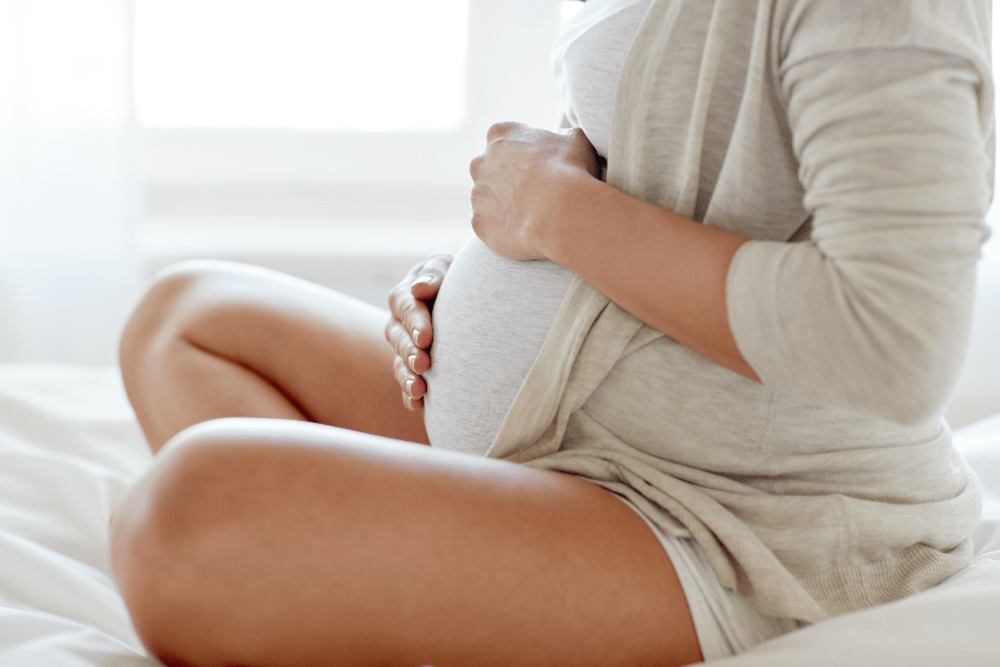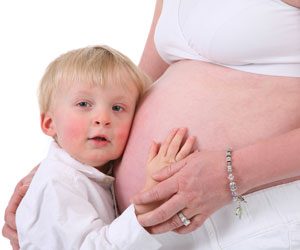
Reprinted with permission from Natural Life Review June 2000
Homebirth. The word arouses strong reactions even in alternative circles, and amongst those who avoid the medical system in other parts of their lives. Who would want to have their baby at home when there is a safe, clean, free hospital system?
Interestingly, the answer is not ‘hippies’, although many families who choose homebirth make other unconventional lifestyle choices. In fact, homebirthers tend to be more highly educated than the general population. This include doctors (such as myself and my partner), lawyers, accountants, actors, students, natural therapists and midwives. The one thing that we have in common is what I would call a healthy scepticism about the medical system, and faith in the wisdom of our bodies to birth naturally.
For myself, the scepticism comes from experience during my hospital training (including training as a GP obstetrician) and has been very much validated by my experience birthing my four babies at home, as well as by my research and writing on birth-related issues. The faith is something more intuitive; an attribute that I was fortunate to still have after nine years of medical training, and which has served me well in my mothering, as well as my birthing.
Is homebirth safe? Some people would reply- Is life safe? Neither home nor hospital can guarantee a particular outcome, which can be difficult to accept in a society where we expect to be able to control everything. Birth is the ultimate mystery. We do ourselves and our babies a huge disservice, I believe, when we attempt to impose certainty and predictability on this most elemental process.
However, we can answer this question scientifically, from the vast amount of research that homebirth has attracted. In essence, one cannot conclude that either home or hospital birth is safer (a conclusion that is very disappointing to the medical system), for women who are at low risk of complications. International homebirth research shows good outcomes for mother and baby. It has much lower rates of interventions such as drugs and caesareans. Much of this data is summarised on an excellent website on the safety of homebirth – http://www.changesurfer.com/Hlth/homebirth.html
Does it really matter where or how we give birth, as long as our babies are born alive and healthy? I would argue that birth is an initiation, a doorway that leads us into motherhood, and that a good experience- one from which we emerge elated and with our self-confidence enhanced- lays an important foundation for confident and fulfilling mothering. In a society such as ours, where new mothers are so poorly supported, the head start that a positive birth experience gives is, to my mind, even more crucial.
And what of the experience for the baby? Researchers are finally discovering what women have always known. That is newborn babies are highly sentient beings, exquisitely sensitive to their surroundings, and that experiences around the time of birth can have life-long sequelae. For example, Scandinavian research has linked exposure to pain-killing drugs at birth to increased risks of drug addiction in later life. Other studies have found that multiple birth trauma is a risk factor for increased rates of suicide and violent criminality. Many psychologists and psychiatrists have come to believe that the way in which we are born has a profound impact on our personality and habits- for a deeper exploration, see the website of the Association for Pre- and Perinatal Psychology and Health – www.birthpsychology.com
Babies are also exposed, via the placental blood flow, to every drug that the mother is given, and the negative effects of drugs such as epidurals and pethidine are well documented in the research. In one study, babies of 6 weeks of age were still adversely affected by the epidurals given to their mothers in labour. This is particularly concerning to researchers in brain development. They note that drugs given in late pregnancy (including birth) can cause permanent alterations in the baby’s growing brain. The effects of which may not be noticeable for 10 years or more.
So far I have argued for the benefits of a “natural” birth. One where mother and baby are allowed to follow their own rhythms rather than the clock (which author Sheila Kitzinger describes as the worst bit of technology in the birthroom), and are not exposed to drugs and physical interventions such as forceps, episiotomy and caesareans. Although this birth experience is possible in a hospital setting, it is enjoyed by only a small number of women who choose hospital birth – a Victorian survey estimated this figure at less than 10%. In contrast, the vast majority of women who choose homebirth have no interventions, with, as I have stated, excellent outcomes for themselves and their babies.
Having a baby at home is an invitation to accept more responsibility for your own health and wellbeing, and that of your baby. It is also a commitment to standing up for your own beliefs and rights, and long-term investment in your family. Homebirth is not the right option for everyone- above all, a woman must give birth where she feels safe, and therefore where the processes of birth will unfold with the most ease. Feelings of anxiety or fear will inhibit labour in any setting, and conversely, when a woman feels relaxed and supported, her body will open up to give birth more readily.
Homebirth is an option for families living in areas that are served by homebirth midwives. In Australia, this includes major, and some minor centres, and Brisbane has an active support group, the Home Midwifery Association, which is open to all and which meets fortnightly – contact number as below. For areas outside Queensland, phone Homebirth Australia- see below.
I have chosen to have my babies at home for all of the above reasons. Moreover, I believe that there is a deeper agenda. I see that we are distanced from our babies, our bodies and the earth by current birth practices. But, that there is the opportunity for each of us in our own birthings to uphold the sacredness of life, and of the archetypally feminine act of giving birth. Anyone who has been privileged enough to witness, or experience a natural birth, cannot help but be awestruck by the beauty and power of birth. Also, I believe that this power exists for our own healing, and that of our planet.
One of my sources of inspiration in birthing has been US midwife and author Jeannine Parvati Baker. Jeannine whose mystery school in ‘womancraft and lay midwifery’ has the motto “Healing the earth by healing birth”. JPB has a wide and radical agenda. From natural family planning- what she calls Conscious Conception- to homebirth and freebirthing (where every woman is her own midwife). Also, as an extension to homebirth, home-based education and optimal family health.
Contacts
- Home Midwifery Association www.homebirth.org.au
- Homebirth New South Wales www.homebirthnsw.org.au
Revised on 6th December 2021


Recent Comments